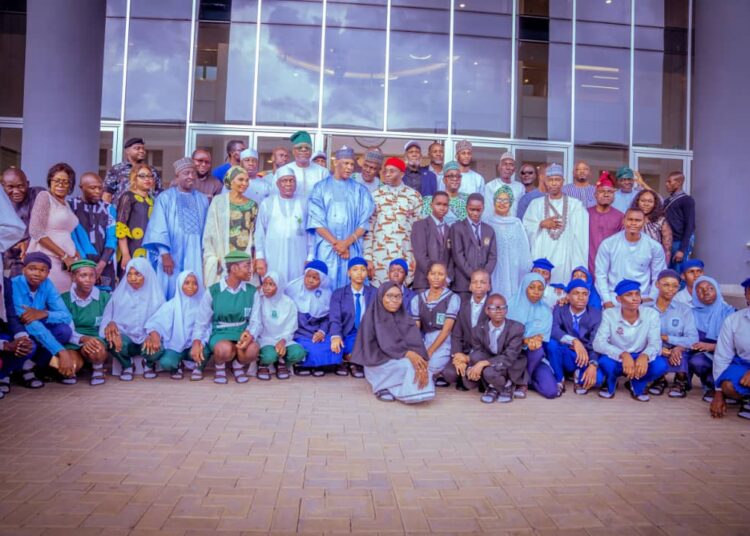As part of activities marking Nigeria’s 64th Independence Day anniversary and his 59th birthday, Speaker of the House of Representatives, Hon. Abbas Tajudeen on Tuesday, donated some food and household items to the Internally Displaced Persons (IDPs) at Kabusa Community in the Federal Capital Territory (FCT).
The items donated to the facility include 1,000 bags of 10kg rice, 200 cartons of noodles, over 800 pieces of clothes for men and women, as well as bedsheets.
A statement by his Special Adviser on Media and Publicity, Musa Krishi, said Abbas, who led a delegation comprising the Deputy Speaker, Rt. Hon. Benjamin Kalu; the Chief Whip, Hon. Usman Bello Kumo, and other members of the House to the IDPs’ camp, said he was moved by their plight.
The Speaker was supported on the visit by the representatives of the National Commission for Refugees, Migrants and Internally Displaced Persons (NCFRMI) and the National Emergency Management Agency (NEMA).
Also at the humanitarian ceremony, Speaker Abbas provided free medical services for IDPs with certain ailments.
Meanwhile, Speaker Abbas had earlier in the day hosted students from six public secondary schools in the FCT for an interaction, where he responded to their questions.
At the interaction which lasted for over an hour, the Speaker explained that for Nigeria’s education sector to return to its glorious days, adequate supervision and quality assurance in public schools must be prioritised by those tasked with the duties of running the sector.
He decried the largely unregulated and proliferation of private schools, which he said had led to an unacceptable decay in public schools across the country, saying “even teachers teaching in public schools now have their children in private schools because they don’t even believe in what they are doing for a living.”
He added, “When we were growing up, there was no such thing as private school because everyone, including the Emir, the Commissioner, the Minister and the biggest business tycoon in the town had to take their children to the available public schools, everyone was interested in what happened there.
“For that reason, there was strict and adequate supervision of the teachers and those running the schools, which was why the standard was very high. But today it’s a different story altogether because even government officials no longer take their children to public schools due to the proliferation of private schools and the decline of standard in public schools.”
The Speaker advised the students to imbibe the culture of hard work, which he noted to be an aspect of patriotism, saying that although their generation has access to smart ways of doing things, that has also made them to cultivate the habit of following shortcuts to success.
Abbas also harped on the importance of believing in oneself, recalling how he became self-reliant at a very young age after his secondary school education to becoming a teacher, up to the point where he became a homeowner at age 19.
Also stressing the importance of unity in diversity, he urged the students to love their country as they love themselves, saying the concept of loving one’s neighbour as one’s-self eschews any element of ethnicity, tribalism and religious sentiment.
The students who were drawn from public secondary schools in the six Area Councils of the FCT made various presentations, including technological innovations as birthday gifts to the Speaker.





